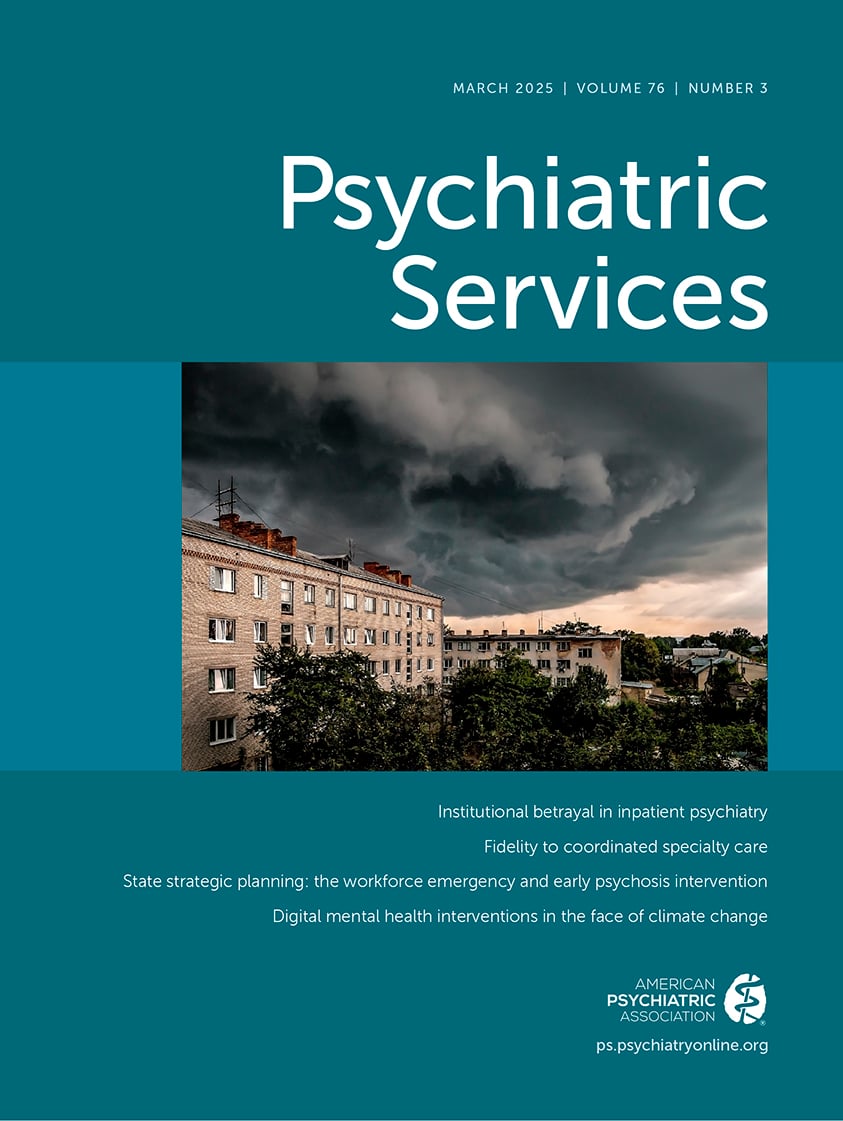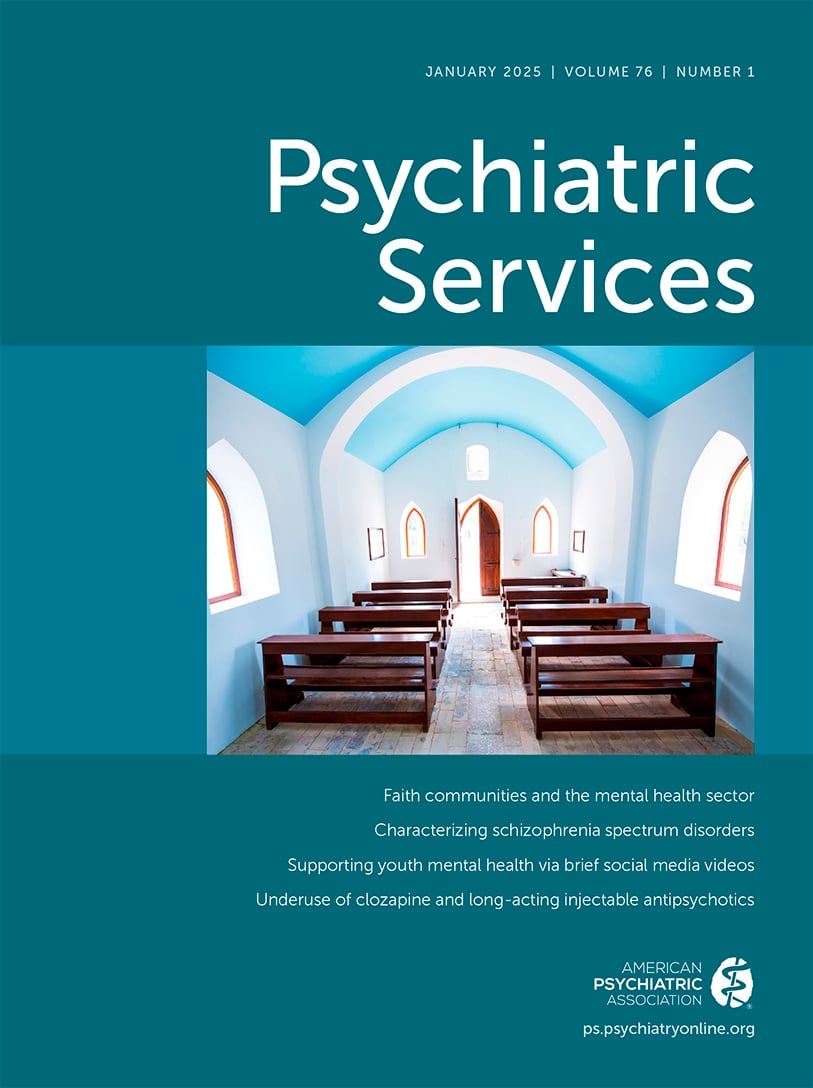Psychiatric Services
- Volume 40
- Number 1
- January 1989
Article
Publication date: 01 January 1989
Pages9–12Dr. Sharfstein's Introduction: Most mentally ill individuals do not have adequate insurance coverage for necessary treatment either in a hospital or in an outpatient setting. This problem has reached crisis proportions in the United States with the ...
https://doi.org/10.1176/ps.40.1.9Publication date: 01 January 1989
Pages19–23This month's guest expert is Dr. Joseph Flaberty, professor of psychiatry and community health science and director of education and training in the department of psychiatry of the University of Illinois at Chicago. Dr. Flaherty has conducted research on ...
https://doi.org/10.1176/ps.40.1.19Publication date: 01 January 1989
Pages29–40Recent years have seen significant advances in sleep disorders medicine, including effective treatments for chronic psychophysiological insomnia and obstructive sleep apnea syndrome; greater understanding of biological rhythms and of the nature of sleep ...
https://doi.org/10.1176/ps.40.1.29Publication date: 01 January 1989
Pages41–46A one-year study of staff injuries from inpatient violence at a large forensic state hospital found that 121 staff members sustained 135 injuries. Nursing staff sustained 120 of the injuries, for a rate of 16 injuries per 100 staff, and professional staff ...
https://doi.org/10.1176/ps.40.1.41Publication date: 01 January 1989
Pages46–51Homelessness as a dimensional concept reflecting instability of community living arrangements was examined in an urban state hospital's sample of 187 aftercare patients with chronic mental illness. According to ratings by outreach clinicians, 17 percent ...
https://doi.org/10.1176/ps.40.1.46Publication date: 01 January 1989
Pages52–59Data collected in a statewide study of psychiatric patients involved in civil commitment bearings in North Carolina were used to evaluate the effectiveness of outpatient commitment as a less restrictive alternative to involuntary hospitalization. Six ...
https://doi.org/10.1176/ps.40.1.52Publication date: 01 January 1989
Pages59–63Schizophrenic patients in Mannbeim, West Germany, were studied to determine whether psychiatric treatment in the community reduces duration and frequency of rehospitalization, whether it has an impact on symptomatology and behavior, and whether it can be ...
https://doi.org/10.1176/ps.40.1.59Publication date: 01 January 1989
Pages64–68The use of electroconvulsive therapy (ECT) at a university teaching hospital in 1970 and in 1980-81 was reviewed. The percentage of psychiatric patients who received ECT declined modestly over the period, from 4.4 percent to 2.9 percent, despite ...
https://doi.org/10.1176/ps.40.1.64Publication date: 01 January 1989
Pages68–74Controlled studies examining the relationship between psychiatric disorders and war and other traumatic events are reviewed. Several studies have found a correlation between the severity of posttraumatic stress disorder symptoms and the degree of trauma. ...
https://doi.org/10.1176/ps.40.1.68Publication date: 01 January 1989
Pages75–79In 1985 a grand jury was convened by the district attorney to investigate conditions at the Rochester (N.Y.) Psychiatric Center following the center's decision not to notify police of the sodomy of a patient by another patient. The grand jury brought no ...
https://doi.org/10.1176/ps.40.1.75Publication date: 01 January 1989
Pages80–82Our study shows that increased length of stay is associated with the presence of psychiatric comorbidity in inpatients who have certain medical illnesses such as neoplasms; circulatory, digestive, renal, and respiratory disorders; and operative ...
https://doi.org/10.1176/ps.40.1.80Past Issues
View Issues Archive
Vol. 76 | No. 3

Vol. 76 | No. 2

Vol. 76 | No. 1
